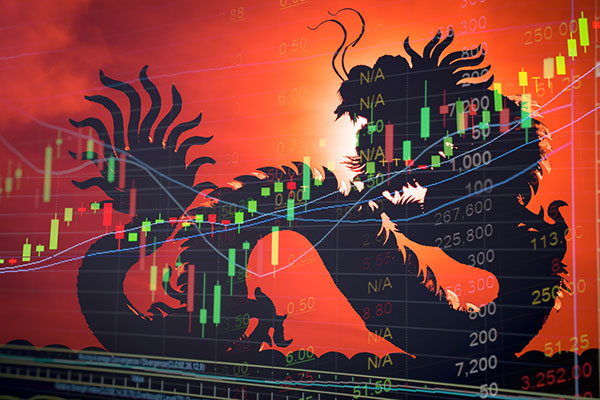Avoiding China tech is now paying off for sustainable trust
10th May 2022 13:43
by Kyle Caldwell from interactive investor
This trust, a member of interactive investor’s ACE 40 list of sustainable funds, boldly looks past the biggest tech shares in China, which dominate the index.

Pacific Assets (LSE:PAC) investment trust’s lack of exposure to China turned from a headwind into a tailwind over its last financial year – to 31 January 2022.
In its annual results, published today, the trust reported a net asset value (NAV) total return of 9.1%. This outpaced other Asian investment trusts, with the average trust down 1.7% in NAV terms. Faring worse was the wider market, with the MSCI All Country Asia ex Japan Index down 9.2%.
However, the share price failed to keep up with NAV return, up 2.9%, owing to the trust trading on a discount.
The trust’s performance had lagged rival trusts in recent years. The board has been patient, with chair James Williams in October 2020 publicly backing the fund manager to turn around performance. The trust also retained its place on interactive investor's ACE 40 list of sustainable funds.
- Investing in China: buying opportunity or not worth the risk?
- Funds and investment trusts with the punchiest portfolios
- Why fund managers are trimming and not ditching tech shares
Performance is now picking up. Portfolio manager David Gait, of Asia and emerging market specialist fund house Stewart Investors, has boldly avoided Chinese tech stocks, which up until last year had been the big stock market success stories.
The big three players – Tencent (SEHK:700), Alibaba (NYSE:BABA) and Meituan (SEHK:3690) – account for 25% of the MSCI China Index. As a result, fund managers who hold little exposure or avoid these companies, have up until recently seen their performance hurt. Conversely, fund managers who backed Chinese tech, and many funds do hold these companies as their largest positions, did not see their performance suffer versus the index.
However, it all changed last summer when unexpected new regulations from China’s government were imposed on its own technology and education industries. This sparked a sharp sell-off for both sectors, as well as the wider market. The new regulations threaten the future earnings and profitability of companies in those sectors. In addition, the prospect of further political meddling in the future provoked concerns over whether capital from overseas investors would be withdrawn from China’s equity market.
Over the past six months, the share prices of Alibaba and Meituan have almost halved, while Tencent is around 30% lower.
Gait has previously explained that “the absence of quality stewards of sustainable franchises with robust financials and valuations dissuaded us from investing [our investors’] capital in the large majority of companies listed in China”.
James Williams, chair of Pacific Assets, pointed out in the annual report that Gait’s “sceptical view, held for a long time, of the risks of political interference in companies in China” has “been an important driver of good relative returns in the last 12 months, although over the three- and five-year period for the trust against its peer group, the trust has still lost some ground”.
He added: “Whatever happens from here on, the portfolio manager’s concerns over the risks of political interference in the running of some key franchises in China, have been justified.”
- Ian Cowie: China is cheap, but I prefer India and Vietnam
- Why I’d still buy Chinese stocks despite crackdowns
- Three pros on why China’s political risk is a price worth paying
Williams added that he hopes the improved performance will drive down the discount, which is currently 11%.
“Better relative performance after two difficult years is assisting investor sentiment, as will the portfolio manager’s high level of credibility as a sustainable investor, attractive to shareholders who are seeking exposure to Asia through genuinely responsible investing.”
The trust has just 5.5% of assets in China. Instead, it is favouring India, which accounts for just half of the portfolio. Over its financial year, eight of the top 10 contributors to performance were stocks listed in India.
The trust invests in companies that contribute to, and benefit from, the sustainable development of the Asia-Pacific region.
These articles are provided for information purposes only. Occasionally, an opinion about whether to buy or sell a specific investment may be provided by third parties. The content is not intended to be a personal recommendation to buy or sell any financial instrument or product, or to adopt any investment strategy as it is not provided based on an assessment of your investing knowledge and experience, your financial situation or your investment objectives. The value of your investments, and the income derived from them, may go down as well as up. You may not get back all the money that you invest. The investments referred to in this article may not be suitable for all investors, and if in doubt, an investor should seek advice from a qualified investment adviser.
Full performance can be found on the company or index summary page on the interactive investor website. Simply click on the company's or index name highlighted in the article.